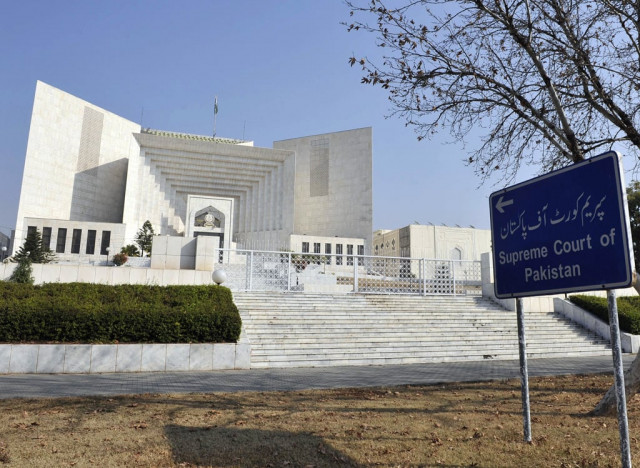21st Amendment: Death penalties awarded by military courts challenged
SCBA seeks an interim SC order staying execution of persons convicted to death

PHOTO: AFP
Noor Saeed, Haider Ali, Murad Khan, Inayatullah, Israruddin and Qari Zahir were condemned to death on April 2 by the military courts which have been established through a constitutional amendment under the National Action Plan.

As the full court is resuming hearing of more than a dozen petitions against the establishment of the military courts on Thursday (today), the SCBA on Wednesday filed an application through Asma Jahangir, requesting the apex court pass an interim order staying execution of the men convicted by the military courts till the final disposal of the constitutional petition. It also prayed that as the guardian of the Constitution the apex court has to ensure the fundamental rights.
“The recent trials of military courts are neither public nor transparent and military courts do not ordinarily observe principle of due process thus the apprehensions of the petitioner are genuine and have merit,” reads the plea.
It further states that only the names of the accusedwere given in the media and there was no other information available. “The 21st [constitutional] amendment by itself does not dismiss observance of fundamental rights guaranteed in the Constitution,” it adds.
They questioned if the persons arrested were enemy aliens? If they were not enemy aliens, were the accused informed of the grounds for such arrest? Were the accused given the right to consult and be defended by a lawyer of his choice? Was the accused produced before a magistrate within a period of 24 hours?
The SCBA apprehended that the rights of the accused were not protected through a fair trial. The petitioner also apprehended that protection against retrospective punishment was not extended to the accused persons.
Asma Jahangir asked if the accused were compelled to testify against themselves? Were the accused tortured for extracting evidence? She stated that all these factors are crucial for protecting individuals against arbitrary trial.
She also asked, “Were the accused given the right to consult and be defended by a legal practitioner of his choice?”
Published in The Express Tribune, April 16th, 2015.



















COMMENTS
Comments are moderated and generally will be posted if they are on-topic and not abusive.
For more information, please see our Comments FAQ